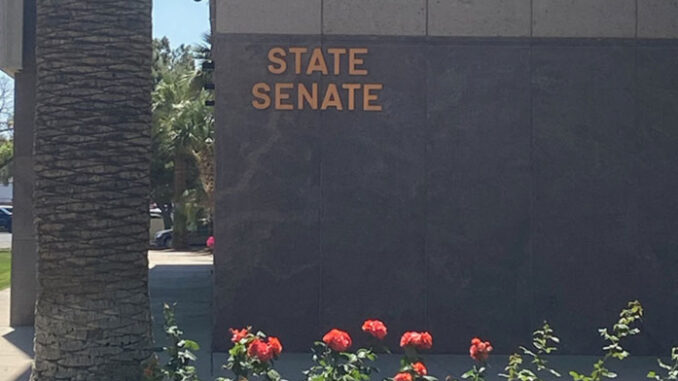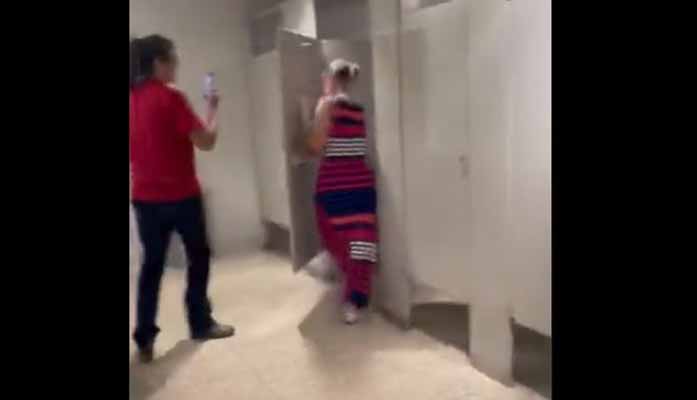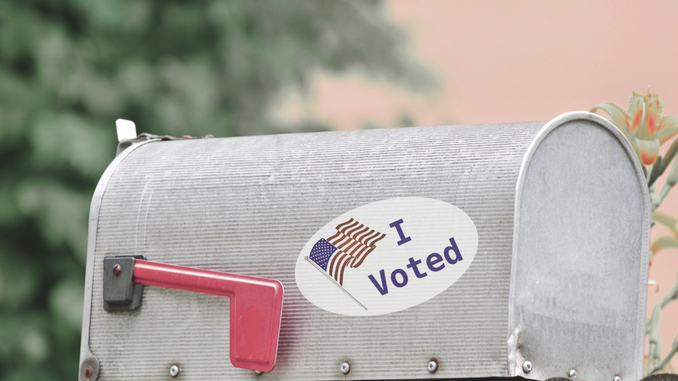
by Corinne Murdock | Feb 22, 2022 | Education, News
By Corinne Murdock |
Last week, the Arizona House passed a bill removing algebra II from the mathematics pathway required for high schoolers to graduate, instead offering alternative courses including personal finance, computer science, statistics, or business math. The bill, HB2278, passed mainly along party lines, with several Democrats voting in support of it: State Representatives César Chávez (D-Phoenix) and Mitzi Epstein (D-Chandler). HB2278 appeared before the Senate on Monday for a second reading.
State Representative John Fillmore (R-Apache Junction) told the House Education Committee earlier this month that he introduced the bill because high schoolers need more practical math skills.
“We’ve been taking our kids and pushing them with more college-oriented programs such as trigonometry, algebra, and advanced algebra III. But basic math for the kids to understand, have the ability to amortize a loan, and do business discounting and understanding that sometimes 60 percent off an item in a retail store still may not be a good deal even with that 60 percent, depending on what that margin rate was when they bought it,” said Fillmore.
State Representative Jennifer Pawlik (D-Chandler) attempted to introduce an amendment to have the State Board of Education create multiple alternative math graduation pathways, require that high school graduation pathways have two additional courses teaching algebra II critical thinking skills, and eliminate personal finance from courses suggested for the math graduation pathway. Pawlik’s amendment failed.
During the House floor vote last week, State Representative Michelle Udall (R-Mesa) asserted that, from her perspective as a math teacher, this bill would better equip high schoolers with applicable critical thinking and math skills. She read a list of algebra II standards to the floor, asking them to consider whether they were applicable to everyday life.
“We do use common sense, logic, reasoning. These are things we do need to learn, and there are several different math classes that would teach you those concepts: personal finance, business math, statistics. You’re going to learn real-world, real contexts, and ways to use math — not only to do that critical thinking and reasoning, but in a way that might be more engaging to some students,” said Udall.
Epstein concurred with Udall’s assessment. She noted that she was disappointed Pawlik’s amendment wasn’t passed, and wished that four years of math would be required of high schoolers.
“I do think it makes sense that we want to have rigorous math, we want to have relevant math. And currently, our standards are not achieving relevant math,” said Epstein.
In opposition to the bill, Minority Leader Reginald Bolding (D-Laveen) said that the bill would only “dumb down” the standards.
Corinne Murdock is a reporter for AZ Free News. Follow her latest on Twitter, or email tips to corinne@azfreenews.com.

by Terri Jo Neff | Feb 22, 2022 | Education, News
By Terri Jo Neff |
Arizona lawmakers have increased the aggregate expenditure limitation (AEL) for the state’s K-12 schools, eliminating the need for those schools to make more than $1.1 billion in spending cuts with several months left in the current school year.
House Concurrent Resolution 2039 allowed for the overall spending cap for all of the public schools to be lifted by a total of $1,154,028,997. The bipartisan resolution was introduced by House Speaker Rusty Bowers (R-LD25) and co-sponsored by Rep. Reginald Bolding (D-LD27).
It passed the House last week on a 45 to 14 vote, with 17 Republicans voting with the Democratic caucus to ensure the required two-thirds “supermajority” margin.
HCR2039 then came up for a vote in the Senate on Monday, passing on a 23 to 6 supermajority margin after 9 Republicans joined with all 14 of the chamber’s Democrats. Voting nay were Michelle Ugenti-Rita (LD23), Wendy Rogers (LD6), Warren Petersen (LD12), Vince Leach (LD11), David Gowan (LD14), and Sonny Borelli (LD5).
The only two legislators who did not cast a vote on the resolution were Rep. Athena Salman (D-LD26) who is on maternity leave and Sen. Kelly Townsend (R-LD16).
After Monday’s vote, Senate President Karen Fann directed the resolution be returned to the House so Speaker Bowers can transmit it to the Arizona Secretary of State. The governor’s signature is not required for enactment of the resolution.
Failure to pass the resolution by March 1 would have caused Arizona’s K-12 schools to begin planning for spending cuts. There was some debate as to whether school administrators would have actually had until April 1 to implement the cuts, but by law the Legislature’s deadline is March 1.
Issues with the AEL have been the subject of discussion for several years. It stems from the fact the Arizona Constitution requires the Economic Estimates Commission (EEC) to annually determine an AEL for all public school districts for the next fiscal year.
The AEL is currently calculated by adjusting the expenditures of local revenues for all school districts in FY1980 to reflect the changes in student population and the cost of living and multiplying the result by 1.10. Critics note the local revenues base has not been adjusted for four decades.
For FY2022, the EEC calculated the AEL for all public school districts to be $6,019,638,192. That figure is then compared against an annual report from the State Board of Education (SBE) of the actual aggregate expenditures of local revenues for all districts for the current year.
SBE calculated the FY2022 aggregate expenditures of local revenues to be $7,173,667,189.
When the SBE figure exceeds the AEL, the Legislature must authorize spending in excess of the AEL but only up to the SBE amount. Which is what lawmakers just did for this fiscal year. Or the SBE must notify each school district of the amount by which it may have to reduce its expenditures for the rest of the year despite the fact the money has been budgeted.
The passage of HCR2039 only applies to raising the AEL cap for the current fiscal year. Unless voters amend the Arizona Constitution’s calculation process the same limitation situation will likely continue.
A vote on the AEL could have taken place last month, but many lawmakers were waiting for a ruling from Judge John Hannah of the Maricopa County Superior Court about whether Proposition 208 revenues would exceed the current aggregate expenditure limit.
Prop 208 narrowly passed in November 2020 to enact a 3.5 percent tax on income above $250,000 ($500,000 married filing jointly). This is on top of the existing 4.5 percent tax rate for income above $159,000 ($318,000 married filing jointly).
A legal challenge followed, and last August the Arizona Supreme Court issued a ruling that Prop 208 revenues applied toward the AEL and thus would be unconstitutional if the taxes collected actually exceeded the spending cap. The justices then sent the case back to Hannah to crunch the numbers.
Hannah was made aware of the Legislature’s March 1 deadline and even acknowledged that some lawmakers wanted to see his ruling in the Prop 208 case first. However, the judge told the parties earlier this month that he has until March 10 under court rules to issue his ruling, and he did not intend to jump the case in front of others also awaiting rulings.

by Terri Jo Neff | Feb 21, 2022 | News
By Terri Jo Neff |
Several hundred women will be descending on Casino Del Sol later this week for the winter state meeting of the Arizona Federation of Republican Women (AzFRW).
For the last 98 years, the AzFRW has been dedicated to empowering Republican women of all ages and backgrounds to influence policy, develop candidates and elect the leaders of Arizona. The state federation is chartered under the National Federation of the Republican Women, considered largest grassroots network of Republican women in the country.
There are more than 3,000 state members across 8 regions and 27 clubs. A large number of those members are expected to participate in the AzFRW meeting in Tucson from Feb. 24 to 26.
The AzFRW also works closely with the Arizona Republican Party (AZGOP), County Republican Committees, and the Republican National Committee (RNC) to bolster the size and strength of the Republican Party through the recruitment of qualified candidates for office and the fortification of our grassroots community network.
“We work to promote an informed public through political education and activity; increase the effectiveness of women in the cause of good government; encourage and facilitate cooperation and communication among local clubs, their members and the AzFRW; foster loyalty to the Republican Party and promote its principles and candidates in all elections,” according to the AzFRW website.
AzFRW state officers are Cindy Casaus, President; Nancy Cottle, 1st Vice President – Programs; Arlene Goldblatt, 2nd Vice President – Membership; Robyn Cushman, 3rd Vice President – Ways & Means; Allison Mary, Secretary; Donna Stawicki, Treasurer; and Loraine Pellegrino, Immediate Past President.
Its regional directors are Pat Lorenzen, Granite Mountain RW (Region I); Glenda Bird, Queen Creek-San Tan Valley RWF (Region II); Susan Marcell, Thunder Mountain RW (Region III); LaJuana Gillette, London Bridge RW (Region IV); Elsie Tyree, RW of Prescott (Region V); Ashley Trussell, Mesa RW (Region VI); Jamie Kelly, Arrowhead RW (Region VII); and Linda Rizzo, Lincoln RW (Region VIII).

by Corinne Murdock | Feb 21, 2022 | News
By Corinne Murdock |
Karina Ruiz de Diaz, an illegal immigrant who qualified for Deferred Action for Childhood Arrivals (DACA) and is hedging on President Joe Biden’s promise of a pathway to citizenship, petitioned to end a bill prohibiting illegal immigrants from voting, HB2492. As AZ Free News reported last week, the House Government and Elections Committee passed the bill.
“[This bill] is threatening my ability as #DACA and the ability of #immigrants in AZ to help those eligible citizens to register to #VOTE,” wrote Ruiz de Diaz.
Ruiz de Diaz was among the group of individuals who filmed themselves following Senator Kyrsten Sinema (D-AZ) into a bathroom last October over her refusal to answer whether she’d support President Joe Biden’s reconciliation bill. Later on the same day of that incident, Ruiz de Diaz confronted Sinema on her plane ride back to D.C. It appears, however, that Ruiz de Diaz didn’t have to worry about her voting rights during the 2020 election: she revealed that her son voted for Biden.
“I am a DACA recipient from Arizona who volunteered to help elect Sen. Sinema. I asked her to follow through on her promises to immigrants in Arizona and support citizenship through reconciliation,” stated Ruiz. “My son voted for President Biden and his Build Back Better agenda. He voted for bold action from democrats to protect immigrants.”
In January, police dismissed their investigation into the activists who followed Sinema. Law enforcement said that Sinema went into the bathroom with knowledge that it was illegal to film another in the bathroom, citing Sinema’s comments in the initial police report. Arrests can jeopardize an individual’s DACA status.
According to an Arizona Republic profile on Ruiz de Diaz’s family, which included details of their illegal border crossing, Ruiz de Diaz came to Arizona from Mexico in 1999 at around 14 years old. She fled with her father, Mauro Santiago Ruiz Barrita, and her mother, Virginia Ruiz Barrita, after her father claimed he was attacked at gunpoint in their hometown of Oaxaca, Mexico. Arizona Republic reporter Megan Taros featured the story of Ruiz de Diaz’s family last March as part of a story on Ruiz Barrita’s death at 74 from COVID-19 in “Loved and Not Forgotten: Phoenix and Scottsdale Area,” part of the outlet’s series, “100 Stories.”
Ruiz de Diaz supplemented the content for the profile on her father, noting that he was saddened he couldn’t return to Mexico to see his dying mother three years ago. She added that her father would often say about America: “Even if the cage is made of gold it is still a prison,” in Spanish.
“His heart was broken between the U.S. and Mexico,” said Ruiz de Diaz in the interview.
Due to being an illegal immigrant, Ruiz de Diaz told CNN that it took over a decade to earn a biochemistry degree from Arizona State University (ASU).
“I have felt voiceless because in Arizona voters passed a law that says I have to show proof of legal residency for in-state tuition. Because of that law, it took me 12 years to graduate from college with a bachelor of science in biochemistry that I’m not using right now. I’m not working in my field because I have to be fighting this fight. My life and the lives of people like myself who qualified for DACA, and people who did not, were on the line the last four years. This fight took priority,” said Ruiz de Diaz. “I dream of going back to my field one day. I want to teach science. I want to do research. When I’m a citizen I could go back to doing that, knowing I have grown leaders in the community who can carry on the work of the nonprofit.”
Currently, Ruiz de Diaz serves as the executive director of Arizona Dream Act Coalition (ADAC), a nonprofit that advocates for illegal immigrants’ unfettered access to work, housing, and education. Ruiz de Diaz told CNN in the same interview that she’s helped thousands of people register to vote over the years; her desire to vote served as one main reason she supported Biden.
“The first thing that I would do is register to vote. I have helped so many people register to vote in the last five years, I lost count. It’s more than 1,000 or 2,000 people, because I wanted them to be a voice for me. I wanted them to understand the power that they have in deciding who represents them,” said Ruiz de Diaz.
Corinne Murdock is a reporter for AZ Free News. Follow her latest on Twitter, or email tips to corinne@azfreenews.com.

by Terri Jo Neff | Feb 20, 2022 | News
By Terri Jo Neff |
Public comments are due on or before March 4 for those wishing to provide input about a proposed plan by U.S. Air Force change how its special use airspace is utilized in several military operations areas, referred to as an MOA.
The USAF recently issued a Notice of Intent for the preparation of an Environmental Impact Statement to evaluate potential impacts of proposed actions involving MOA airspace which is used to support missions at Davis-Monthan AFB, Luke AFB, and Morris Air National Guard Base.
An MOA is an airspace established outside Class A airspace to segregate certain nonhazardous military activities from civilian and commercial air traffic. Vertical and lateral flight limits are specified in an MOA, as well as flight activities which are prohibited or allowed (and when) within the MOA.
According to the USAF, the MOAs proposed for optimization include Tombstone, Outlaw, Jackal, Reserve, Morenci, Bagdad, Gladden, Sells, Ruby, and Fuzzy. A map provided with the notice of intent shows those MOAs cover a large swath of airspace across Arizona,
The changes under consideration include updating the published times for using an MOA; adjusting the altitudes of existing MOAs to support low-altitude training; authorizing supersonic training at lower altitudes in more MOAs; and authorizing use of chaff and lowering the minimum release altitude for flares.
Some MOAs would see minimal changes, but others -such as Tombstone- would see an expansion of lateral flight limits, thus allowing military flights over areas of southeast Arizona and southwest New Mexico where such flights are not currently permitted.
The proposed action would not create any new MOAs nor make changes to land use beneath the MOAs or weapons release, according to the Air Force.
Information about the overall proposed action, as well as details of how each MOA would be impacted is available at https://www.arizonaregionalairspaceeis.com
Only five in-person public meetings were scheduled with USAF personnel about the notice of intent, one of which was canceled in Bagdad due to COVID-19 restrictions in the area. The one meeting remaining in Arizona will be at Morenci on Feb. 23.
However, a meeting in Reserve, NM on Feb. 22 and one in Animas, NM on Feb. 24 are open to anyone who wishes to attend. An USAF spokesman said the public meetings were scheduled for impacted communities known to have limited internet access.
All of the information provided at the in-person meetings is available on the website. The website also includes the ability to submit comments online.
The USAF intends to update the website as the project moves forward.

by Corinne Murdock | Feb 20, 2022 | News
By Corinne Murdock |
The House Government and Elections Committee narrowly approved a resolution requiring expanded voter ID requirements for any mail-in or early drop-off ballots.
HCR2025, called the “Arizonans for Voter ID Act,” would require voters to sign an affidavit with their ballot, including their birth date and an “early voter ID” constituting one of the following: their driver’s license number, nonoperating ID license number, last four digits of their Social Security number, or their unique identifying number. In order to protect the voter’s information, counties would be required to provide an additional privacy folder or slip.
The resolution would also prohibit the Arizona Department of Transportation (ADOT) from charging a fee for an ID if the applicant discloses that the ID was obtained for the purposes of registering to vote or voting. Photo ID that doesn’t contain a suitable address must be accompanied by additional documentation verifying ID.
State Representative John Fillmore (R-Apache Junction) introduced the resolution, formed with assistance from the Arizona Free Enterprise Club. The Club’s deputy director, Greg Blackie, explained that there’s currently a similar voter initiative being conducted throughout the state, also called Arizonans For Voter ID. Blackie added that this resolution expanded on last year’s universal ID efforts.
In response to concerns from Minority Leader Reginald Bolding (D-Laveen) that voters’ private information would be compromised, Blackie reminded Bolding that the same private information was routinely sent through the mail such as tax return forms.
Bolding said that he was in opposition to the legislation because it didn’t take into account the difficulties it might impose on the elderly or the Navajo nations. He said that many lack multiple forms of what would qualify as early voter ID. Bolding implied that legislators’ fears over Arizona becoming a purple rather than a red state were the real reason behind this bill, prompting chiding from Chairman John Kavanagh (R-Fountain Hills).
Fillmore rebutted that he witnessed all parties support the parallel voter initiative currently underway: supporters from the Green Party and independents, in addition to Democrats and Republicans.
“This is a pure voter integrity bill and the people get to speak on it,” said Fillmore.
Corinne Murdock is a reporter for AZ Free News. Follow her latest on Twitter, or email tips to corinne@azfreenews.com.






